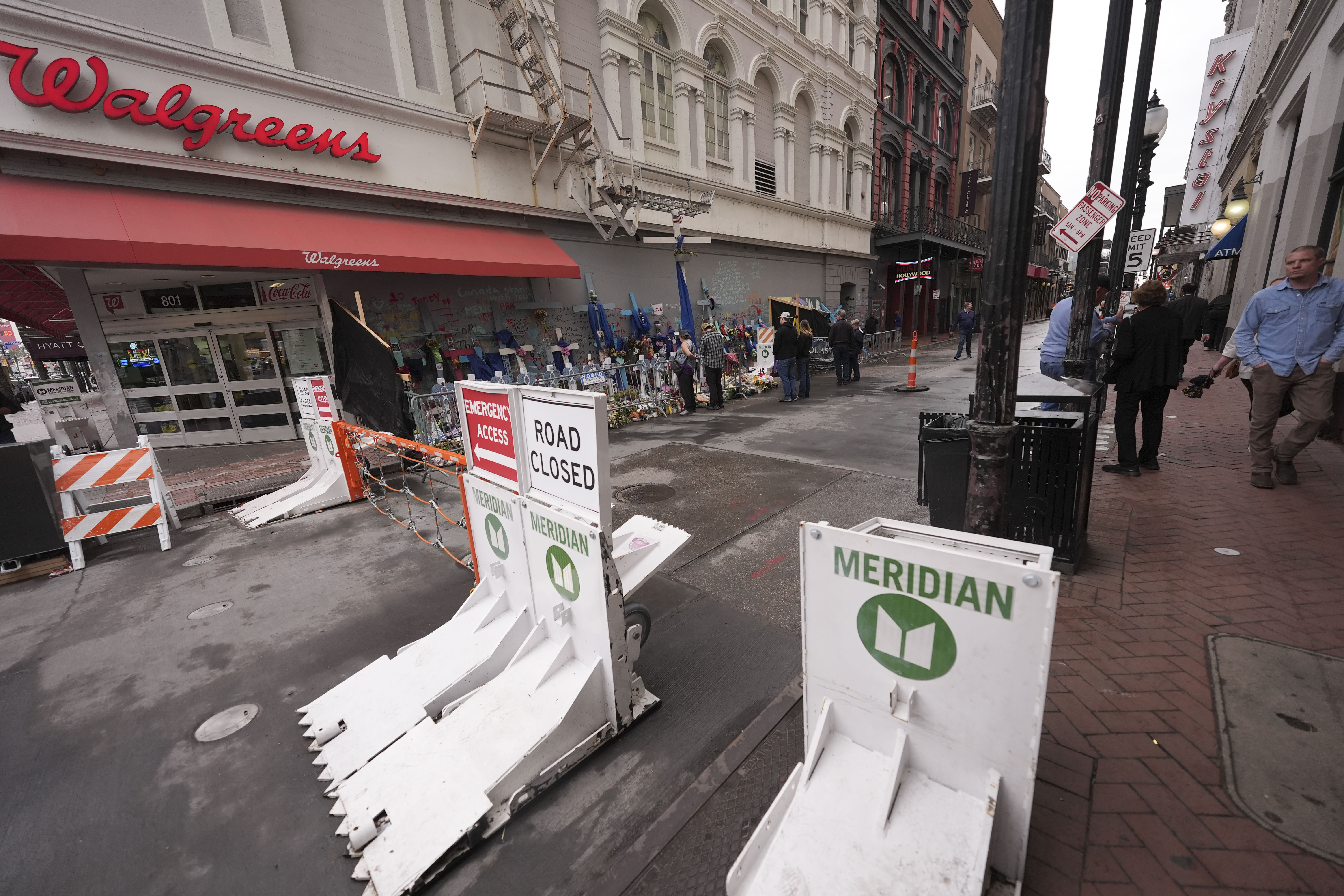The Republican president posted on social media that the tariffs were necessary “to protect Americans," pressing the three nations to do more to curb the manufacture and export of illicit fentanyl and for Canada and Mexico to reduce illegal immigration into the U.S.
Trump declared an economic emergency in order to place duties of 10% on all imports from China and 25% on imports from Mexico and Canada. Energy imported from Canada, including oil, natural gas and electricity, would be taxed at a 10% rate. Trump’s order includes a mechanism to escalate the rates charged by the U.S. against retaliation by the other countries.
“The actions taken today by the White House split us apart instead of bringing us together,” Canadian Prime Minister Justin Trudeau said in a somber tone as he announced that his country would put matching 25% tariffs on up to $155 billion in U.S. imports, including alcohol and fruit.
He channeled the betrayal that many Canadians are feeling, reminding Americans that Canadian troops fought alongside them in Afghanistan and helped respond to myriad crises from wildfires in California to Hurricane Katrina.
“We were always there standing with you, grieving with you, the American people,” he said.
Mexico’s president also ordered retaliatory tariffs.
"We categorically reject the White House’s slander that the Mexican government has alliances with criminal organizations, as well as any intention of meddling in our territory,” Mexican President Claudia Sheinbaum wrote in a post on X while saying she had instructed her economy secretary to implement a response that includes retaliatory tariffs and other measures in defense of Mexico’s interests.
“If the United States government and its agencies wanted to address the serious fentanyl consumption in their country, they could fight the sale of drugs on the streets of their major cities, which they don’t do and the laundering of money that this illegal activity generates that has done so much harm to its population.”
The premier of the Canadian province of British Columbia, David Eby, specifically called on residents to stop buying liquor from U.S. “red” states and said it was removing American alcohol brands from government store shelves as a response to the tariffs.
China’s Ministry of Foreign Affairs said the country's government “firmly deplores and opposes this move and will take necessary countermeasures to defend its legitimate rights and interests.”
China began regulating fentanyl-related drugs as a class of controlled substances in 2019 and conducted “counternarcotics cooperation with the U.S.," the ministry said, calling on the U.S. government to correct what it considers wrongful actions.
The Ministry of Commerce in China said it would file a lawsuit with the World Trade Organization for the “wrongful practices of the U.S.” and take measures to safeguard its rights and interests.
With the tariffs, Trump is honoring promises that are at the core of his economic and national security philosophy. But the announcement showed his seriousness around the issue as some Trump allies had played down the threat of higher import taxes as mere negotiating tactics.
The president is preparing more import taxes in a sign that tariffs will be an ongoing part of his second term. On Friday, he mentioned imported computer chips, steel, oil and natural gas, as well as copper, pharmaceutical drugs and imports from the European Union — moves that could essentially pit the U.S. against much of the global economy.
Trudeau warned of economic pain as the tariffs take effect and encouraged Canadians to "choose Canadian products and services rather than American ones.” But he also voiced optimism in the enduring relationship between the two countries.
“It is going to have real consequences for people, for workers on both sides of our border. We don’t want to be here. We didn’t ask for this, but we will not back down in standing up both for Canadians and for the incredible successful relationship between Canada and the United States,” Trudeau said.







